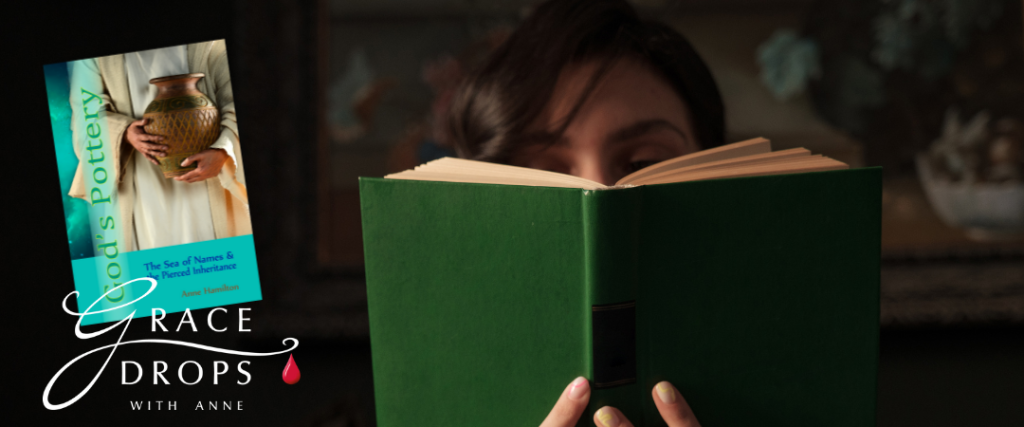Each of the threshold spirts has a different toolbox of tactics when it comes to testing and tempting us. Yet, once we’ve identified a particular spirit and its legal right to function in our lives, the vast majority of us are keen to renounce the vows, cancel the covenants, annul the agreements, declare forgiveness and enact repentance—thereby closing down the spirit’s access to our lives. Most of us are keen to cut all contact straight away.
It’s very rare that believers are not willing to rescind their alliances with Python or Ziz, Rachab or Leviathan, Azazel or Belial.
On the other hand, it’s quite common to see hesitancy about revoking agreements with Lilith, the vampire spirit, or with her alter-ego, Anat. This might seem strange but, in fact, it’s not even unusual for believers to enter knowingly into an alliance of their own volition—something they’d never contemplate with any of the other threshold guardians.
What makes Anat different in this respect? Why do people trust her more than they trust God? After all, as soon as anyone seriously contemplates a deal with Lilith, we can be sure of one thing: the only reason the bargain isn’t instantly dismissed is a deep, hidden distrust of God.
Lilith or her warrior-face, Anat, seems able to find the tiniest crack in our relationship with God and winkle her way in, opening us up ever wider to our own fears as well as the dread of our ancestors. She convinces us that God will not be there to protect us when we need Him, He will not defend us against the abuser, the accuser, the thief, the dispossessor, the destroyer.
And the substance of Lilith’s deal is: give me a regular sip of your resurrection life, hand over your inheritance, and you can keep what you have.
We think to ourselves: we won’t miss what we’ve never had, so it’s better to keep what we’ve got than lose it all. It’s better to hold on to what we’ve earned. If we accept the unearned inheritance, she’ll take everything from us. It’s better to refuse the legacy God wants to grant us. It’s better to reject the grace-gift, rather than have Anat declare all-out war against us.
Such thinking is a deal with Lilith to minimise our losses and to let her have what-might-have-been. We will be content with what-we-have. After all, isn’t that Scriptural?
Lilith, as we’ve seen, weaponises Scripture against us and this is one way it’s done. She manoeuvres us into an agreement to restrain our calling, and to allow only a trickle of the life-giving water of the Holy Spirit into our lives rather than let the full flood float us up to our potential.
It’s a covenant with the grave to bury our calling in order to preserve our comfort zone. All because, deep down, we trust Lilith more than Jesus. And we fear her more than God.
This is Grace Drops and I’m Anne Hamilton. May Yeshua HaMashiach be your covenant defender and refuge.
Thank you to Lorna Skinner of www.riversofmusic.co.uk for the background music.

Understanding false refuges is the single most important step towards dealing with the obstacles barring you from coming into your calling. Hidden in the Cleft explains false refuges in more detail and is available as a paperback or an ebook.
The steps involved in working through false refuges, cancelling covenants with Death and replacing your cornerstone are to be found in the appendices of God’s Pottery.


Thank you Anne,
A oh so common place, this comfort we seek. This lesson was a healthy reminder.
Perseverance through purposeful pain to find our Jesus is there with us.
This podcast came at just the right time for me. I have really stepped into my calling lately and the further I step, especially over the past few days, the more loudly I sense the voice of shame. I have been crying out to Jesus to give me an answer.
This morning I woke up, read this and some of your other posts, asking Jesus to come remove the stakes Lilith has placed in me. I started crying out of nowhere, I could just feel the power of it.
God brought to mind a healing prayer session that I experienced a while back where she could see a stake placed in me through my generational line. I have had dreams about vampires related to my grandparents. All of this is becoming so clear now and I can already sense the freedom that is coming!
The voice of shame has tried to come up once since then and I asked Jesus to rebuke it and immediately felt Gods presence when I am normally unable to despite renouncing, declaring, forgiving etc.
Thank you for all of your work uncovering truth, you are really making a difference! ❤️
Hi Ann, spoke to you in a group chat 2 months ago approximately on Signal. My name is Celia (nickname of Cece), Corinne is middle name meaning maiden or beautiful maiden. Celia however means “blind” because of St. Celia it seems who was blind. I have been struggling with my identity (even at 72) or at least accepting the identity God gave me, not what my family of origin created for me. Taking a Redemptive Gifts Challenge all week and mind renewal from a South African ministry. 3000 people took the test. DNA True North is the ministry. Excellently done. So, the point is…my dominant gift is Perceiver (aka Prophet), 2nd gift is Instructor (Teacher), 3rd (motive gift) is Servant. Perceivers are the eyes of the body of Christ. A respected prophet in my church, told my sister the whole family had a prophetic gifting. Noone, in my family has the Office in the church, mostly dentists….however, the tribe is called to be perceivers and I can see that. And the strengths were wonderful, but when the character flaws for development were showned. He had been reading my diary about the judgeing and condemnation, critical, depressed,…you get the picture. So, it appears the Name principle is still evidenced in 2023. Thanks, Anne!